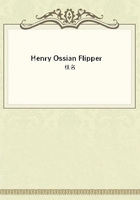
第84章
"Wines were then brought on, and speech-making introduced as a set off. A. J. Ransier, in one of his usual pleasant speeches, introduced Lieutenant Flipper, paying him a deserved tribute for his success in the attainment of the first commission issued to a colored graduate of West Point.
"Lieutenant Flipper, in a brief and courteous speech, acknowledged the compliment, and thanked the association for the kind attention paid him, promising them that in his future career in the army of his country he would ever strive to maintain a position which would do credit to his race.
"W. H. Birney next responded in eloquent terms to the toast, 'The State of South Carolina.' J. N. Gregg was called upon, and responded in a wise and discreet manner to the toast of 'The Future of the Colored Man in this Country.' 'The Press' and 'Woman' were next respectively toasted, and responded to by Ransier and F. A. Carmand. Other speeches were made by C. C. Leslie, J. J. Connor, and others, and at a late hour the party retired, after a most pleasant evening's enjoyment.
Lieutenant Flipper leaves for Texas to-morrow."Before closing my narrative I desire to perform a very pleasant duty. I sincerely believe that all my success at West Point is due not so much to my perseverance and general conduct there as to the early moral and mental training I received at the hands of those philanthropic men and women who left their pleasant homes in the North to educate and elevate the black portion of America's citizens, and that, too, to their own discomfort and disadvantage. How they have borne the sneers of the Southern press, the ostracism from society in the South, the dangers of Kuklux in remote counties, to raise up a downtrodden race, not for personal aggrandizement, but for the building up and glory of His kingdom who is no respecter of persons, is surely worthy our deepest gratitude, our heartfelt thanks, and our prayers and blessing. Under the training of a good Christian old lady, too old for the work, but determined to give her mite of instruction, I learned to read and to cipher--this in 1866. From her I was placed under control of a younger person, a man. From him I passed to the control of another lady at the famous "Storr's School." Iremained under her for two years more or less, when Ipassed to the control of another lady in what was called a Normal School. From here I went to the Atlanta University, and prepared for the college course, which in due time I took up. This course of training was the foundation of all my after-success. The discipline, which I learned to heed, because it was good, has been of incalculable benefit to me. It has restrained and shaped my temper on many an occasion when to have yielded to it would have been ruin. It has regulated my acts when to have committed them as I contemplated would have been base unmanliness. And it has made my conduct in all cases towards others generous, courteous, and Christian, when it might otherwise have been mean, base, and degrading. It taught me to be meek, considerate, and kind, and I have verily been benefited by it.
The mind-training has been no less useful. Its thoroughness, its completeness, and its variety made me more than prepared to enter on the curriculum of studies prescribed at West Point. A less thorough, complete, or varied training would never have led to the success I achieved. I was not prepared expressly for West Point. This very thoroughness made me competent to enter any college in the land.
How my heart looks back and swells with gratitude to these trainers of my youth! My gratitude is deeply felt, but my ability to express it is poor. May Heaven reward them with long years of happiness and usefulness here, and when this life is over, and its battles won, may they enter the bright portals of heaven, and at His feet and from His own hands receive crowns of immortal glory.